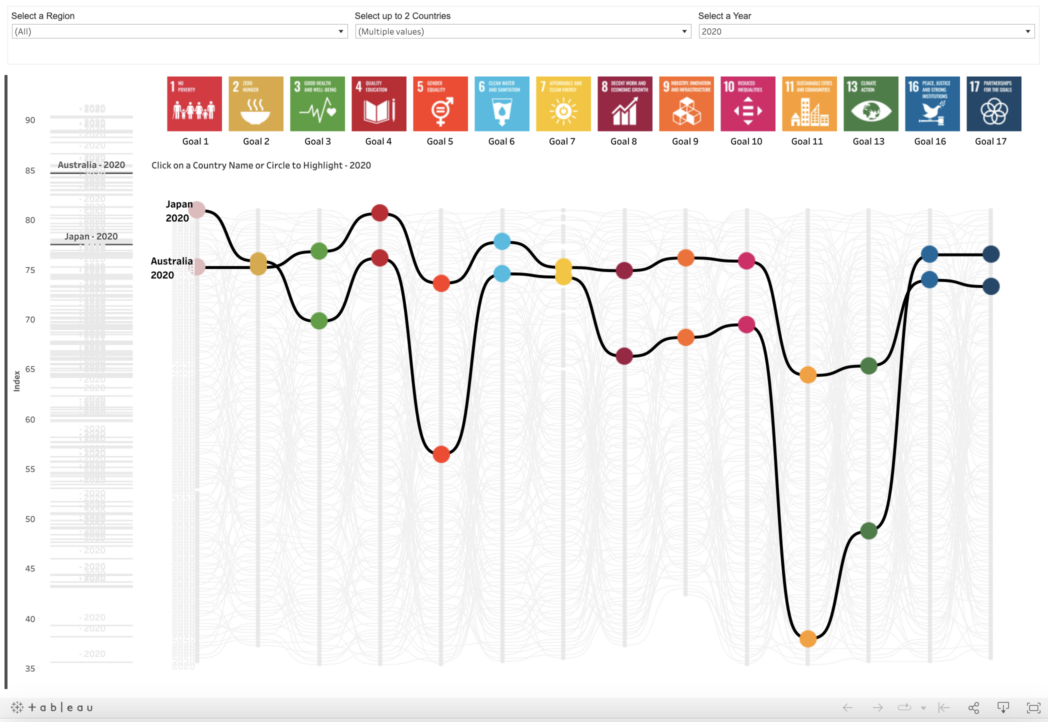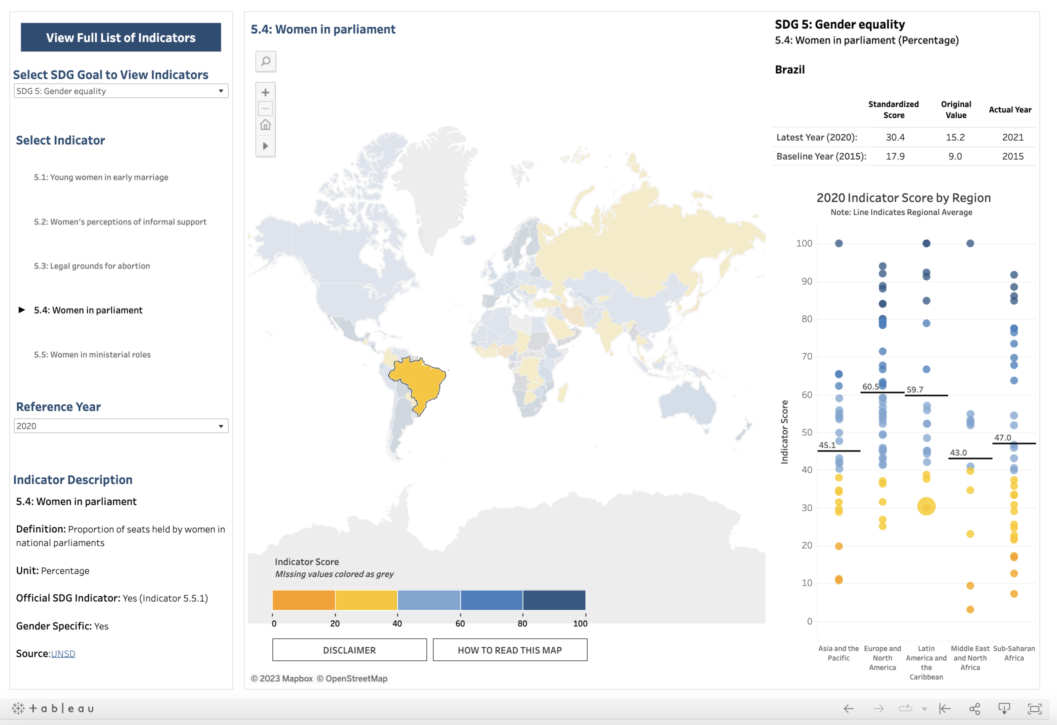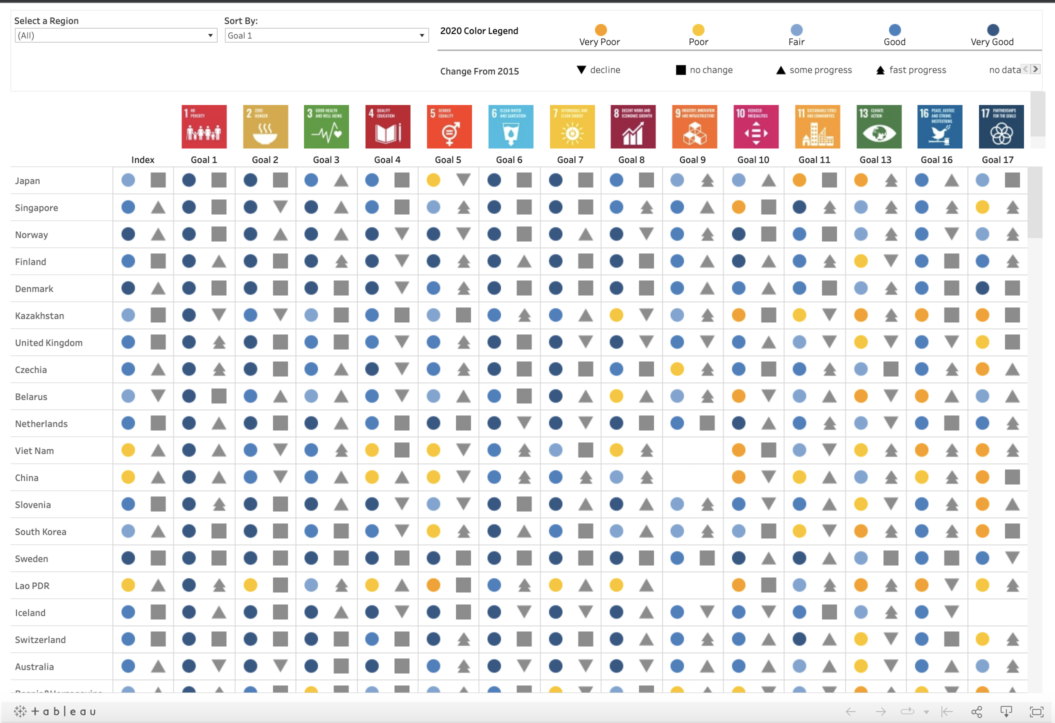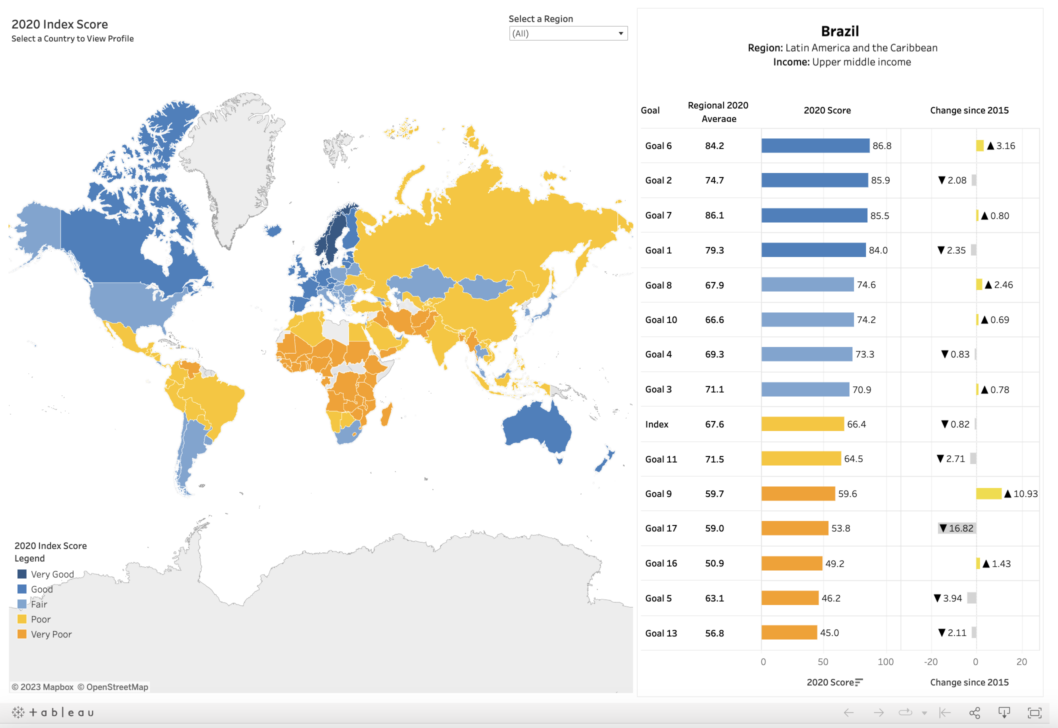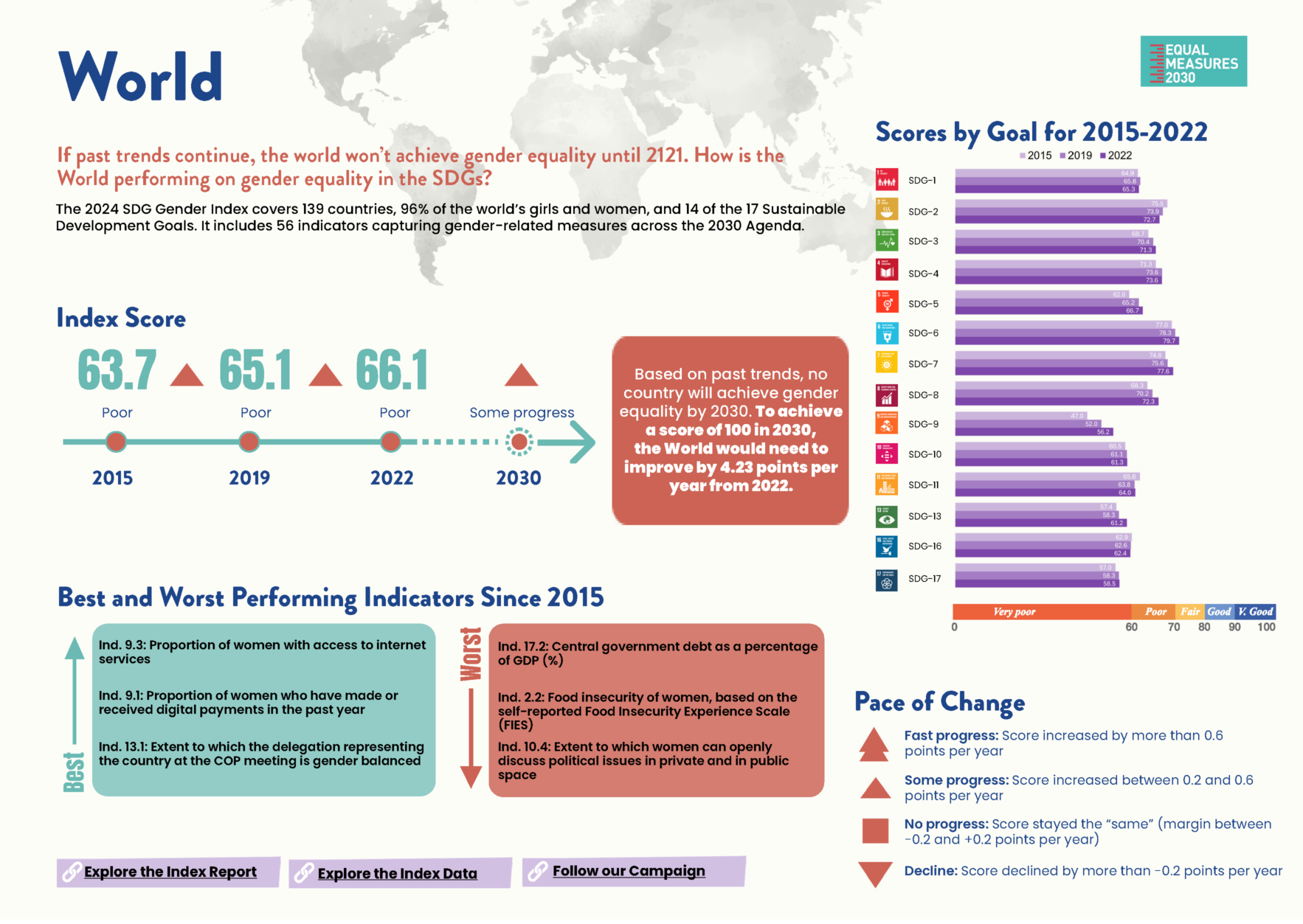
Data gives us all a voice
We ensure that advocates have increased access to relevant data, analysis and tools to track and communicate progress or lack of progress on a wide range of gender equality issues.
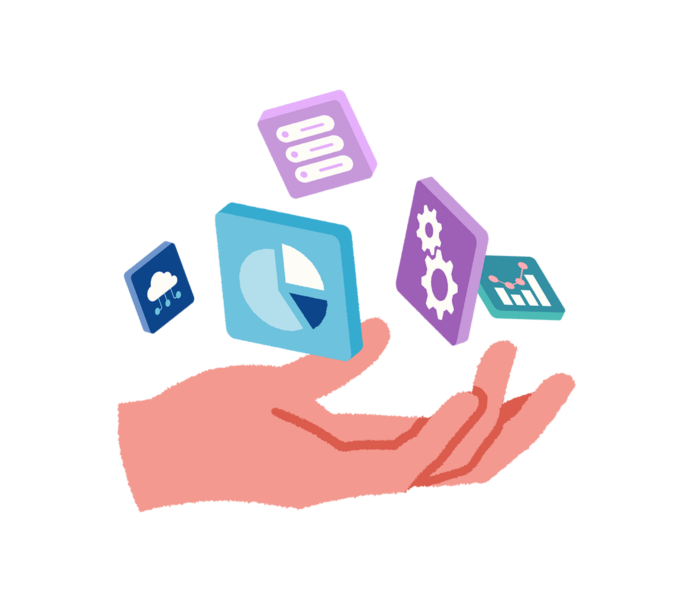
How We Work
- Maintaining and improving the SDG Gender Index to robustly track progress on gender equality across and within the individual SDGs
- Increasing uptake of the SDG Gender Index and related tools among advocates and champions working across diverse thematic areas
- Developing innovative analytic approaches and tools to explore key gender themes and issues
- Connecting advocates with gender data and influencing stakeholders to address critical data gaps
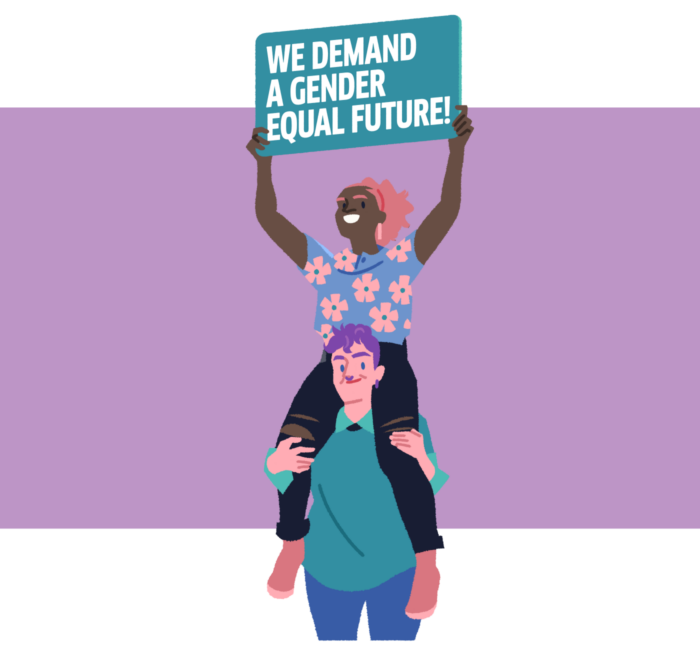
The SDG Gender Index
- The 2024 SDG Gender Index is the most comprehensive global measure of gender equality, monitoring 56 gender-sensitive indicators across 14 of the 17 SDGs
- It covers 139 countries or 96 per cent of girls and women in the world and allows tracking trends since 2015
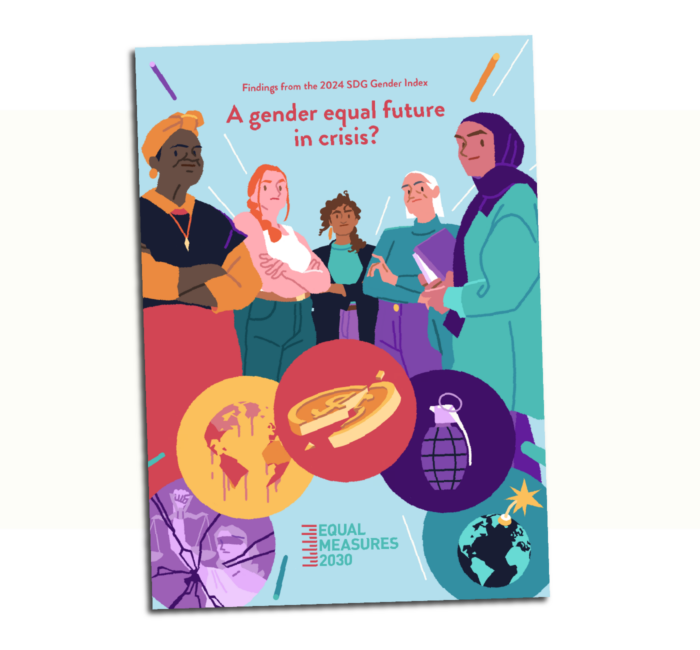
Index uptake and adaptations
The 2022 Index has featured in more than 180 news items reaching an audience of nearly 300 million people.
An Impact Mapper survey of gender advocates showed that over half (56%) of the advocates surveyed had reported using the SDG Gender Index in their work. The most common use was influencing their governments on issues such as violence against women, child marriage, climate change, peace, economic empowerment, health, education and land rights.

How EM2030 coalition members use the index:
- Melinda French Gates, Co-Chair of the Bill & Melinda Gates Foundation cited the Index in her essay in the 2022 Goalkeepers report
- GROOTS Kenya ran a social media campaign using SDG Gender Index and Women Count data, which had 230 million impressions
- FEMNET, the feminist network in Africa cited the Index to underscore the urgency of gender and climate approaches
- La Ruta Pacifica used the Index to engage with over 400 policymakers in Colombia, and mobilized significant sub-national buy-in and commitment to monitoring indicators of gender equality as a cornerstone of the peace process
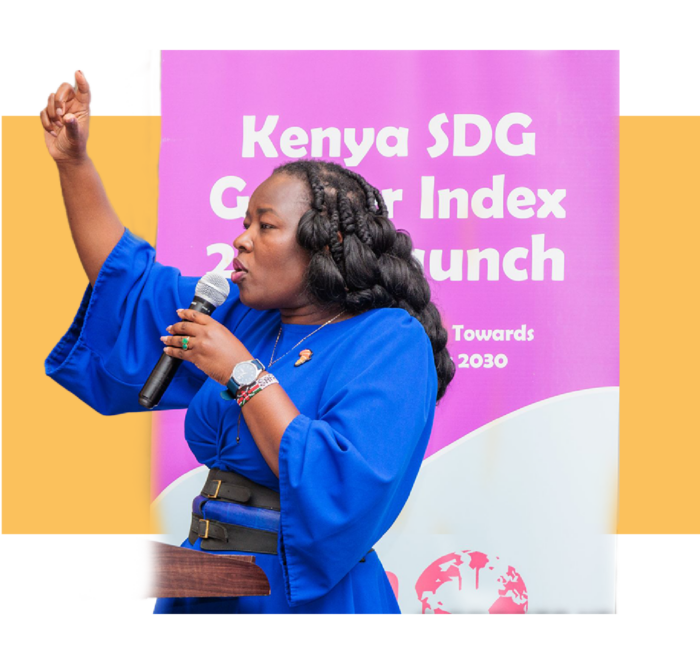
Data visualization
Country performance on the SDG Gender Index can be visualized using four different tools. These tools provide country rankings, overall Index Scores, individual scores for the 14 SDGs available, and scores for the 56 indicators that make up the Index
Explore the Data
Country Profiles
How is your country performing on the 2024 SDG Gender Index? Where do they rank? which goals are seeing the most (or least) progress? Find out all of this and more in our unique country profiles
Find your country here!

Gender data availability and accessibility
- EM2030 works together with a wide range of gender constituencies across the SDGs, towards improving methodologies to better measure gender issues in health, work, water, clean energy, inequalities and education
- EM2030 works together with key constituencies to create lead indicators, used in the Index, for areas such as the extent of abortion laws, laws on gender diversity, and laws on women and employment



